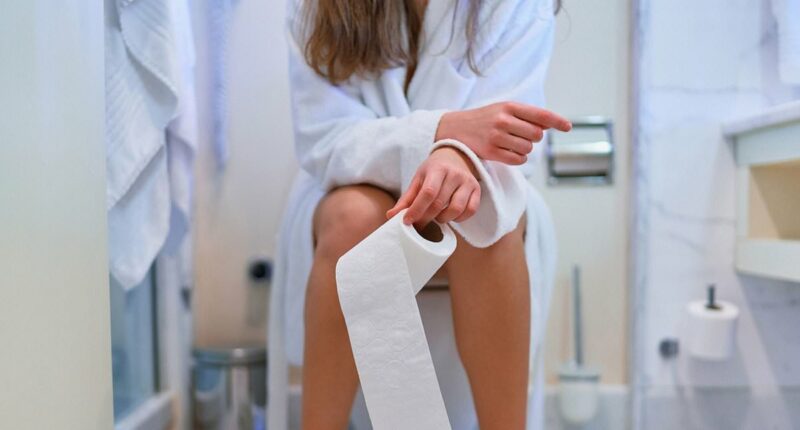Share this @internewscast.com
Bubbles in your urine can a sign of hidden underlying health conditions including organ damage, diabetes and urinary infection, an expert has warned.
Whilst foamy urine could be caused by the force of the stream stirring up the water in the toilet bowl, especially if you are well hydrated, it could also be a sign of something more serious.
‘What looks like harmless foam could by your body’s way of waving a red flag,’ Dr Reshmi Verma, a functional nutritionist and health coach, warned her 114,000 Instagram followers.
‘If you see persistent bubbles, even after hydrating well, get your urine checked for protein levels,’ she urged her followers—as this could be a red-flag sign of kidney disease or immune disorders.
According to the NHS, frothy urine can be a tell-tale sign of glomerulonephritis—damage to the tiny filters inside the kidney caused by the immune system attacking healthy body tissue.
Although mild cases can be treated effectively through dietary changes to reduce the strain on the kidneys, for some people the condition can lead to long-term kidney problems.
Some people with the condition also have high blood pressure which can lead to serious problems like heart attack or stroke if left untreated.
This unusual symptom can also be a sign of large amounts of protein being passed out through urine—a condition known as proteinuria.

According to Dr Verma, bubbles in your urine could be a red-flag warning sign of underlying health conditions
Whilst protein is present in the blood and is essential for growth and repair, healthy kidneys should only filter tiny amounts into the urine.
Under normal circumstances, the kidneys do not permit protein molecules to pass through and end up in the urine, as most proteins are too large to be filtered through.
A significant increase in protein levels is usually an indication of a damaged and leaky kidney filter.
However, it could also be a sign of diabetes or high blood pressure.
Both of these conditions can affect blood flow to the kidneys, impairing their function and resulting in more protein being passed out than usual.
According to Dr Verma, chronic infections like urinary tract infections (UTIs) or bladder problems can also cause cause excess protein and bubbles in the urine.
UTIs affect the urinary tract, which includes the bladder, the urethra and the kidneys.
According to the NHS, common symptoms include pain or a burning sensation when urinating, needing to pass urine more often than usual and cloudy looking urine—which can also be a sign of dehydration.

Spending too much time on the toilet can also be damaging for your health
Some people may also experience lower abdominal or back pain as well as a really high or lower temperature.
‘Remember, early action can protect your health,’ Dr Verma added.
It comes as health experts have warned that spending too much—or too little—time urinating can be a tell-tale sign of underlying health conditions.
Experts have warned that frequently peeing can be a sign of an overactive bladder—which is when you have a sudden, strong urge to urinate even when your bladder isn’t full.
Doctors have long warned against spending too long on the toilet, with endless scrolling on social media exacerbating the risk and triggering a host of health problems.
According to Dr Punam Krishan, these include haemorrhoids, also known as piles, a weakened pelvic floor—triggering continence issues—and, in extreme cases, lead to a painful condition called rectal prolapse.
Haemorrhoids are swollen blood vessels in the back passage that can cause itching, discomfort, bleeding, and a persistent feeling of needing to pass stool.
Though often dismissed as minor or embarrassing, haemorrhoids are extremely common—affecting an estimated one in three adults in the UK at some point.
And the increase in prolonged toilet sitting, often coupled with mobile phone use, is quietly contributing to a rise in cases, Dr Krishnan said.











